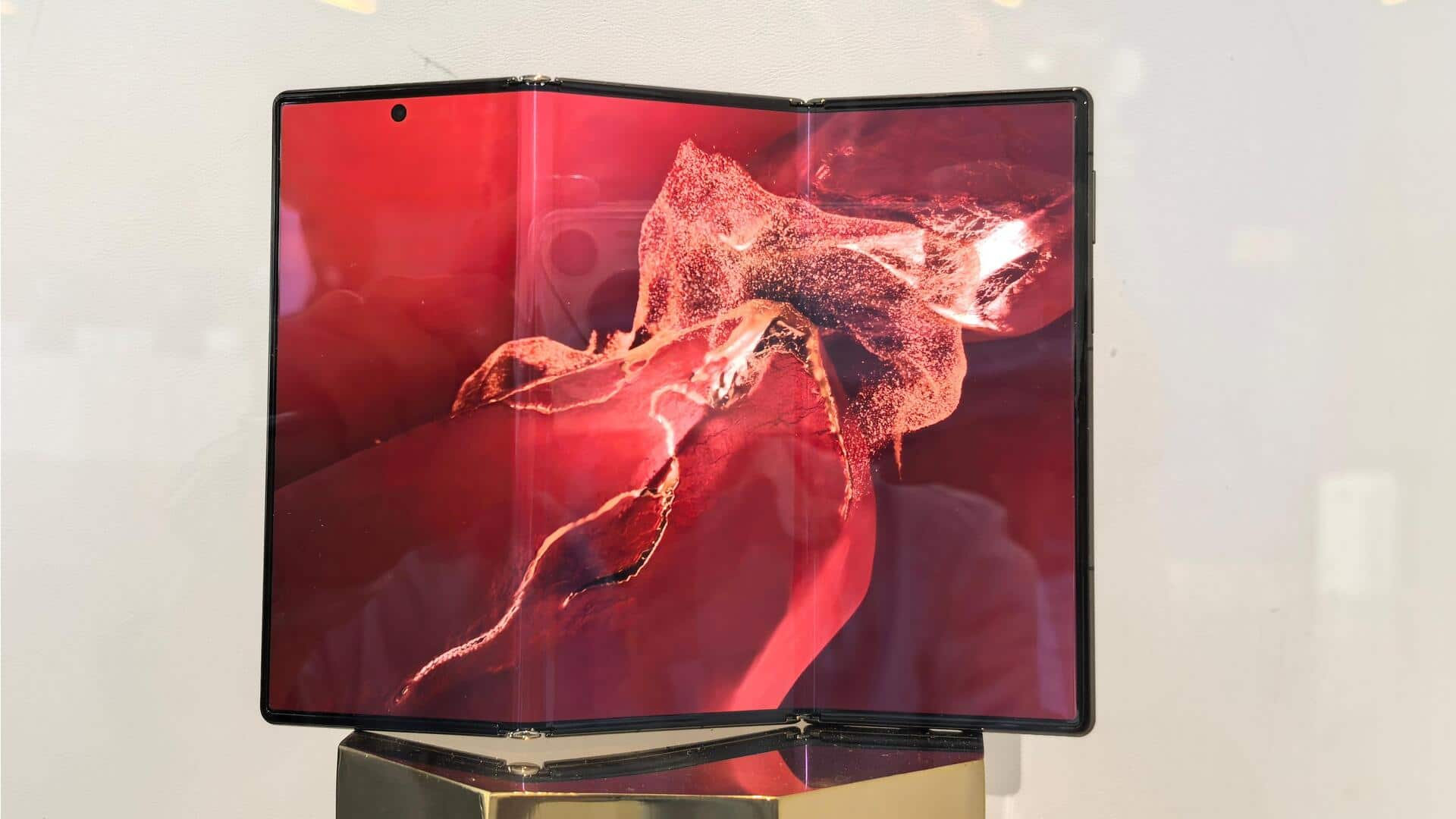
Huawei launches world's first triple-folding smartphone at $2,800
What's the story
Huawei has introduced its innovative trifold smartphone, the Mate XT, with a starting price of $2,800.
The announcement was made by Richard Yu, Huawei's Executive Director and Chairman of the Consumer Business Group Board of Directors.
"We have spent five years striving for this," Yu said during the launch event at Huawei's headquarters in Shenzhen.
The device is now available for pre-orders and will hit stores on September 20.
Product features
Mate XT: A closer look at Huawei's latest innovation
The Mate XT is available in two colors: red and black. It offers three storage options with prices ranging from 19,999 yuan ($2,809) to 23,999 yuan ($3,371).
The device boasts a thickness of just 3.6mm when unfolded and features a large 10.2-inch screen.
It can display content on single, double or triple screens and is compatible with a foldable keyboard.
Twitter Post
Take a look at Mate XT's design
The world's first trifold phone is here❗️
— Ben Geskin (@BenGeskin) September 10, 2024
Huawei Mate XT | Ultimate Design
Starting at ¥19999 ($2800) pic.twitter.com/PaGlmhbHqG
Market response
Pre-order success and AI capabilities
The Mate XT has already seen significant pre-order success, with over 3.5 million people placing orders by midday Tuesday. This number rose above four million following the launch event.
The smartphone also comes equipped with artificial intelligence features such as text translation and cloud-based content generation, as highlighted in Tuesday's presentation.
Industry challenges
Huawei's comeback amid US sanctions
Huawei is making a comeback in the smartphone industry following US sanctions imposed in 2019 and broader restrictions on American sales of advanced chips to Chinese businesses in October 2022.
Despite these challenges, the company has continued its technological advancements.
In late August 2023, it released the Mate 60 Pro featuring a chip manufactured using a seven-nanometer process by Chinese chipmaker SMIC.
Market dominance
Huawei leads in foldable smartphone market
Huawei is a leading player in the foldable smartphone market, with a global market share of 27.5% in Q2, surpassing South Korea's Samsung at 16.4%, according to IDC.
In China's domestic market, Huawei's share rises to 42%, ahead of Vivo and former Huawei unit Honor.
This dominance underscores the company's resilience and innovative capabilities despite industry challenges.